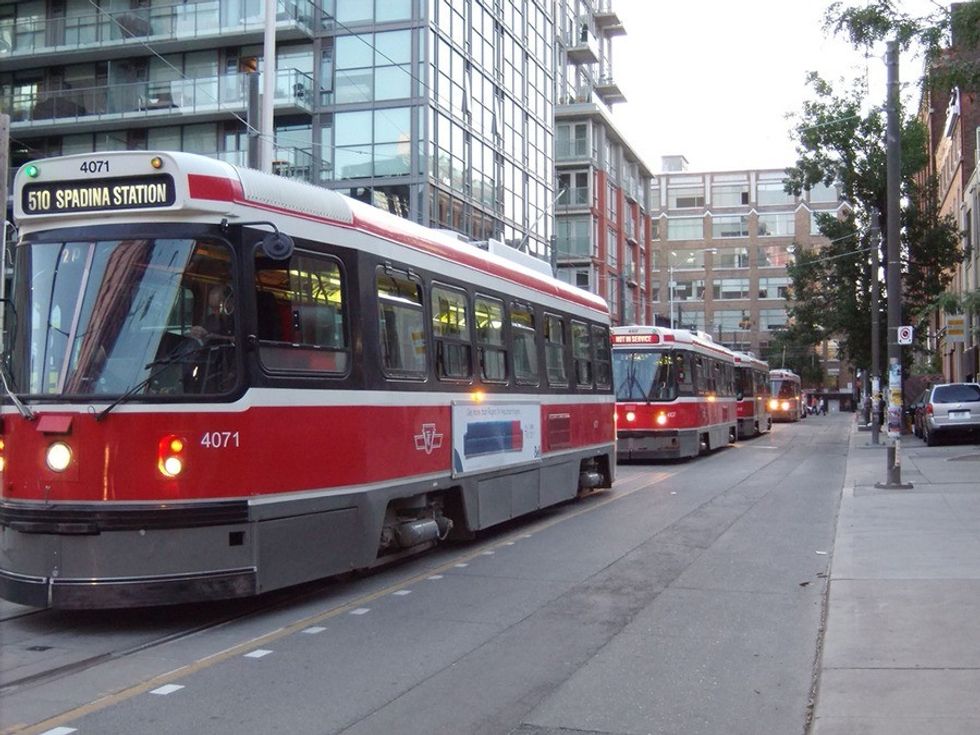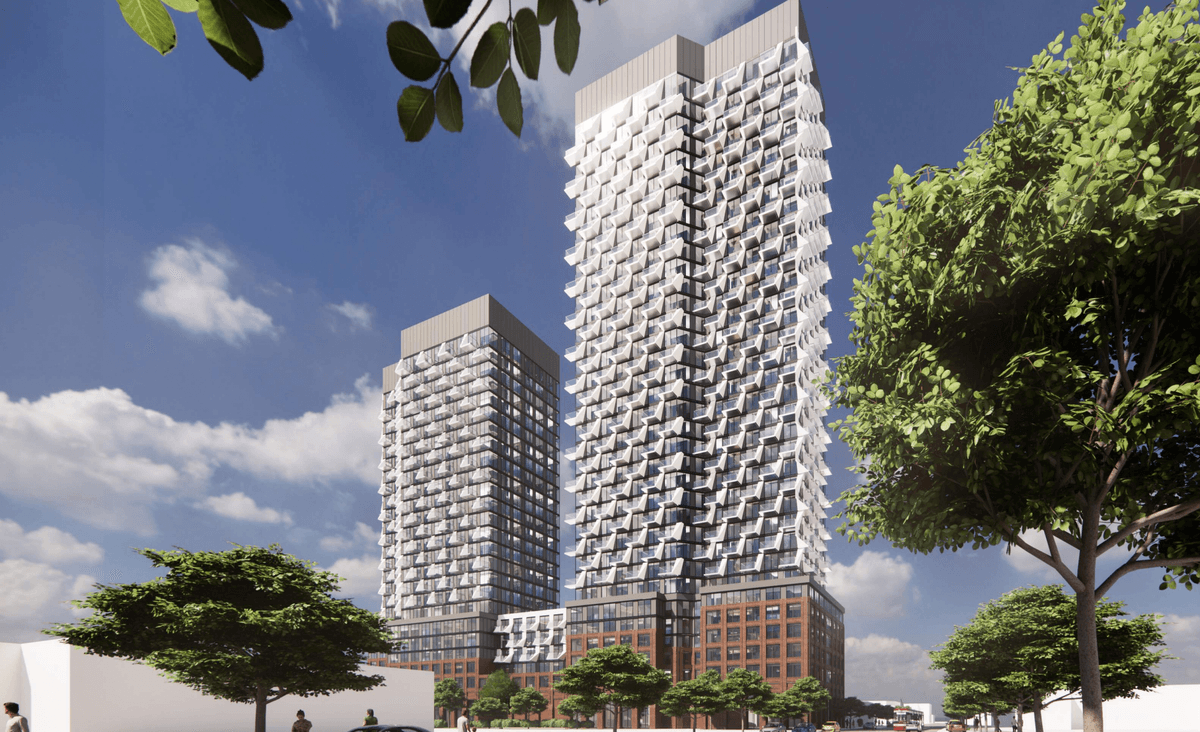Ask most Toronto commuters about the TTC and you'll probably be met with a groan or a pair of rolled eyes. But despite being poorly funded, haphazardly governed, and too expensive, more passengers ride Toronto transit than any other major North American city according to a report, called Mixed Signals.
The report was created by non-profit transit advocacy group CodeRedTO and will be released at city hall on Tuesday.
The information was gathered by comparing fares, network design, budgets, and governing of transit systems in Toronto, Chicago, Los Angeles, Boston, Houston, Washington, D.C., Vancouver, and Montreal.
CodeRedTO executive director Cameron MacLeod said he hoped the report would shine a light on the hard choices facing the provincial and municipal governments as they move to expand transit in the GTA after what he described as “30 years of underfunding and under-expansion.”
READ: Toronto's Transit Travesty
“Toronto and Queen’s Park are proposing change which will not resolve key vulnerabilities in Toronto’s transit: its low level of subsidy and lack of dedicated revenue,” he said.
The report clearly shows that Toronto is “lagging behind other comparator cities in key ways,” particularly when it comes to funding.
READ: GO Transit To Allow Leashed Dogs Their Day With New Pilot Project
Overall, the report indicated four main areas where Toronto is lagging far behind the rest of North America.
First Concern: Fares For Funding
The “most alarming finding,” according to the report, was how heavily the TTC relies on fares for funding.
In 2017, more than two-thirds of the TTC’s $1.8-billion operating budget came from fare revenue, “a level not seen in any other city in North America,” according to the report.
The other cities in the report rely on fare revenue for less than half their operating costs, with a government subsidy making up the majority of funding.
The subsidy the TTC receives is notoriously low—in 2017 it was just 90 cents per rider, according to the report, compared to $4.75 US ($6.26) in Houston, $1.86 in Vancouver, and $4.56 in York Region.
Second Concern: Unclear Funding Sources
The report also found Toronto was an outlier in that most other cities have a dedicated revenue source to pay for transit.
Boston, Chicago, Houston and Los Angeles all use proceeds of a sales tax to pay for transit, while Vancouver has instituted a parking tax and tolls.
Toronto city council voted last December to examine tolling municipal highways to fund transit projects, only to have the Ontario Liberal government at the time deny the motion.
READ: Toronto Has 6th Worst Commute In The World: Here Are The 10 Best And Worst Cities Ranked
MacLeod said the lack of a steady source of funding makes it difficult to follow through on long-term transit plans. The report calls for Toronto to institute “new, predictable, sustainable revenue” to fund transit.
Third Concern: Mixed Governing Bodies
The report also raised concerns about the governance of Toronto’s transit network, which is split between the TTC, a city agency, and Metrolinx, a provincial Crown corporation.
Neither the City of Toronto or the TTC has representation on Metrolinx’s board. Instead, its unelected members are appointed on the recommendation of Ontario’s transportation minister.
MacLeod said Toronto's model effectively means there is a “locked door” between Metrolinx and the TTC that inhibits efforts to co-ordinate transit.
The report concluded, “no other comparator city has a fare card fully controlled by another level of government with no local oversight.”
Fourth Concern: Too Expensive
The report also flagged the high cost of transit passes in Toronto. At $146.25, the price of a monthly TTC pass is the equivalent of 45 cash fares. A monthly pass on Montreal’s STM is the equivalent of just 26.2 cash fares, and the cost of a pass for Vancouver’s TransLink is equal to 32.2 cash fares.
“We have this really big barrier to entry where somebody has to decide at the beginning of the month if they will need the TTC often enough, and they have to have $146 saved up and available,” MacLeod said.
He argued the TTC should institute a pay-as-you go system that would put a cap on the number of rides customers pay for each month—after a certain number of paid rides, trips for the rest of the month would be free. Presto already operates on a monthly cap system on GO Transit, but the TTC says it has no plans to implement such a policy for monthly passes.
Where Toronto Succeeds:
Despite lagging behind other cities in important ways, the report concluded there are some things Toronto is doing well.
READ: Toronto Transit Explorer Is A New Tool To Get You Around The City As Fast As Possible
With about 535 million riders last year, the TTC has the highest ridership of all agencies CodeRedTO studied. Just under one-quarter of commuters in the GTA take public transit to work, compared to 20.4 per cent in the Vancouver area, and just 5 per cent in Los Angeles.





















